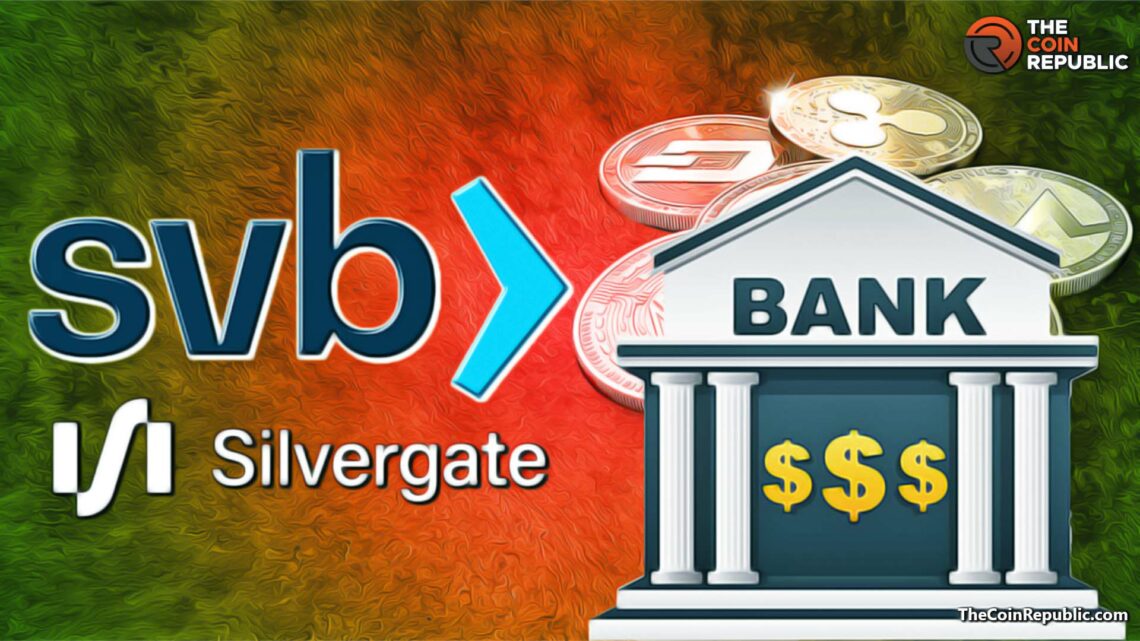Leading crypto-friendly banks Silvergate, Signature and startup-focused Silicon Valley Bank ended their journey abruptly. All three met a similar fate and ended up with an unlikely end. These banks had a prestigious place across the United States banking space. Their exposure to crypto-related operations was also significant enough to create a void after their fall. The instance ignited the discussion that the untimed demise of such a huge financial institution would leave the burgeoning crypto industry ‘unbanked.’
A lot of Contenders to Fill Silvergate and Signature’s Void
Social media space, especially Twitter, was full of concerns of people calling the situation as nobody now left to bank crypto companies. However, many arguments contradict this claim, stating that crypto still has many remaining options.
Undoubtedly there are still plenty of opportunities for crypto firms to go for. Other prominent banks in the United States still provide exposure to digital assets and services to their users.
Bank of New York (BNY) Mellon, the bank with a whopping 43 trillion USD worth of assets under custody, provides crypto custody services. It launched its digital custody platform in October last year, facilitating Bitcoin (BTC) and Ethereum (ETH) holding services to its constitutional clients.
Another prestigious market within the US financial markets, JPMorgan, is also known for its crypto services given its 2020 launched Onyx Digital Assets platform. Since its launch, the platform processed transactions with 430 billion USD. The banking institution is keenly working towards exploring more opportunities leveraging the cutting-edge technology of crypto and blockchain.
Earlier, it was reported to develop “deposit tokens” to provide distinct crucial services from P2P transactions, smart contract facilities, and cash collateral. It was said to run over both public and permissioned blockchain networks.
Axos Bank is also renowned as a crypto-friendly bank that started TassatPay services access to its commercial banking clients in May last year. The private and permissioned blockchain-based digital payments platform, TassatPay, allows payment services 24*7. Around 400 billion USD worth of transactions have taken place until now over the platform.
In addition, Axos offers particular crypto exchange traded funds (ETFs) exposure to its users. This includes Bitcoin 10 Crypto Index Fund (BITW), Proshares Bitcoin Strategy ETF (BITO), ProShares Short Bitcoin Strategy ETF (BITI), and Bitwise Crypto Industry Innovation ETF (BITQ).
Besides US banks, UK-based BCB Bank is also known for digital services custody solutions for major cryptocurrencies, Bitcoin (BTC) and Ethereum (ETH). The institution has been authorized for digital asset services by the Financial Conduct Authority since 2020. The list of its clients includes crypto exchanges Coinbase and Bitstamp.
Several Swiss banks are also in the front row to assist clients seeking crypto-related services. Self-proclaimed “world’s first digital asset bank,” Sygnum Bank, Arab Bank, and crypto-focused SEBA Bank are not hard to recall in the list. Recent reports indicated that after the fall of Silvergate and Signature-like US crypto-friendly banks, a majority of US-based crypto users are moving towards these Swiss banking institutions. Sygnum is an exception for serving US users, given the lack of clarity about crypto regulations within the US.

Andrew is a blockchain developer who developed his interest in cryptocurrencies while pursuing his post-graduation major in blockchain development. He is a keen observer of details and shares his passion for writing, along with coding. His backend knowledge about blockchain helps him give a unique perspective to his writing skills, and a reliable craft at explaining the concepts such as blockchain programming, languages and token minting. He also frequently shares technical details and performance indicators of ICOs and IDOs.


 Home
Home News
News










